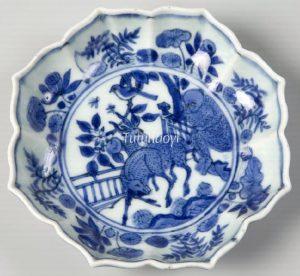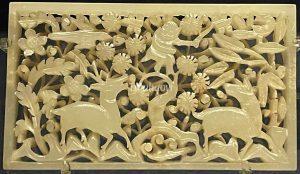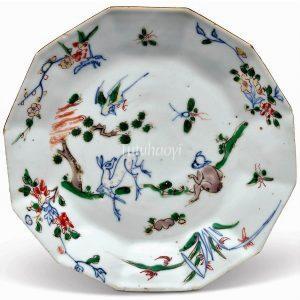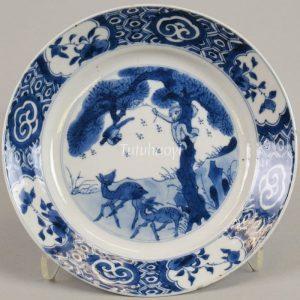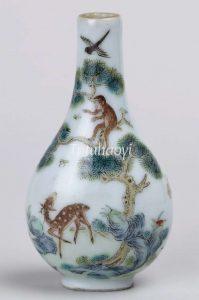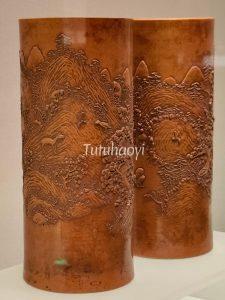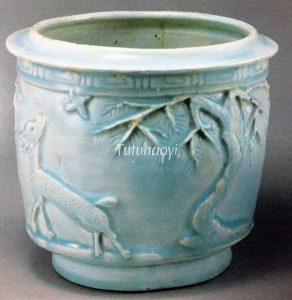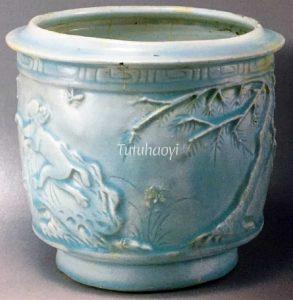May you be created a peer and earn a handsome official income
爵禄封侯
© Tutuhaoyi.com owns the copyright of the description content for the images attached. Quoting all or part of the description content on this page is permitted ONLY IF ‘Tutuhaoyi.com’ is clearly acknowledged anywhere your quote is produced unless stated otherwise. (本页描述内容版权归Tutuhaoyi.com所有,转发或引用需注明 “Tutuhaoyi.com”, 侵权必究, 已注开源信息的条目除外。)
This pun rebus picture consists of four essential pictorial elements: bird, deer, bee, and monkey. The word ‘que 雀’ for ‘small bird’ in Chinese puns on the word ‘jue 爵’ for ‘high official rank’ or ‘peerage’. The word ‘lu 鹿’ for ‘deer’ shares the same sound with ‘lu 禄’ for ‘emolument’ or ‘salary’. The word ‘feng 蜂’ for ‘bee’, is a pun on ‘feng 封’ for the verb ‘to be granted’ and the word ‘hou 猴’ for ‘monkey’ is a pun on ‘hou 侯’ for ‘marquis’, which represents high ranks in the government in general. Thus, the juxtaposition of the four elements is used to convey the auspicious message of ‘May you be created a peer and earn a handsome official income’.
Curios bearing such motifs have been used as treasured gifts passing among friends and colleagues to lubricate the social machinery.
Related Pun Pictures:
Fig 1: porcelain dish with underglaze blue decoration Longqing period (1567–72), Ming dynasty, courtesy of the Trustees of the British Museum
Fig 2: jade carving, Ming dynasty (1368–1644), courtesy of Shanghai Museum, China
Fig 3: enamelled dodecagonal dish, Chongzhen period (1628–1644), Ming dynasty, courtesy of Christie’s Auction House HK, 29 Nov 2022, Lot 2942
Fig 4: porcelain dish with underglaze blue decoration, Kangxi period (1662–1722), courtesy of the Metropolitan Museum of Art, New York
Fig 5: famille rose porcelain snuff bottle, 1800–50, courtesy of Princeton University Art Museum, Object Number: y1936-1037
Fig 6: porcelain furnishings imitating carved bamboo ware, Daoguang period (1821–50), Qing dynasty, courtesy of Liaoning Provincial Museum, China; Photograph by Rachel Ma
Fig 7-8: porcelain container, Qing dynasty (1644–1911), courtesy of Nanjing University Museum, China
